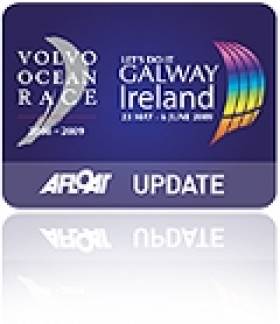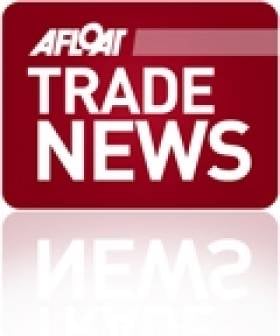Displaying items by tag: businesses
Galway Businesses Urged to Leave Volvo Ocean Race Legacy
#VOLVO OCEAN RACE - Businesses in Galway "must not abuse their affiliation" with the Volvo Ocean Race when taking advantage of its visit to the city this summer, a meeting hosted by the organisers heard on Monday.
As the Galway Independent reports, Galway Chamber president Declan Dooley urged business community to ask what it can do to help the event, rather than expecting the event to do something for its business.
He added that it was “critically important” that businesses ensured the expected 600,000 visitors to Galway were treated with "friendly service" and not "ripped off".
Also at the meeting at the Meryck Hotel, Let’s Do It Global MD Micheline McNamara outlined plans for the the Global Village and Race Villages and explained how businesses could get involved.
She said: “We want to develop a business legacy, so that when the boats leave, there are trade relationships, and business relationships that stay on."
As previously reported on Afloat.ie, organisers of the Volvo Ocean Race stopover this July have promised the event will be "bigger and better" than the previous visit in 2009.
The Galway Independent has more on the story HERE.
Conference Reveals State of Marine Leisure Industry
With boat sales falling by as much as 80%, marina business down 20%, retail sales in chandlery down up to 38%, insurance down 12.5% the marine industry in Ireland and Wales had to take some action to ensure the marine trade and leisure industry survives.
An unusual industry conference took place in Dun Laoghaire today and yesterday with the objective of understanding where the industry is right now and how it needs to act to ensure that it survives the downturn in our economies.
Over 125 marine businesses from both sides of the Irish Sea will be attending in what will be the largest marine leisure Industry gathering ever brought together.
A joint address was given by the Executive Director of the British Marine Federation, Howard Pridding and David O'Brien the Chairman of the Irish Marine Federation set the scene as to where the industry is on both sides of the Irish Sea.
The conference heard from 3 companies who operate in the sector. One from each region, North Wales, South Wales and Ireland who will share with the conference their experiences in the current economic climate on how they are surviving and thriving in the downturn. Business tactics that need to be deployed were explored with a leading business and innovation specialist from Wales together with joint talks by Visit Wales and Failte Ireland on the development of marine leisure tourism.
Leading economist Jim Power delivered a talk on the economic situation and when we might begin to see some consumer confidence return to our markets.
The Pembroke Coastal Forum told how they have managed their coastline and environment and how they have facilitated marine leisure tourism through proper marine spatial planning.
The conference is being organised by irish-sea.org and Ireland/Wales Interreg IV A Programme funded by the European Region Development Fund.
Irish-sea.org has three partners, North Wales Watersports, South West Wales Marine Federation and the Irish Marine Federation.

























































